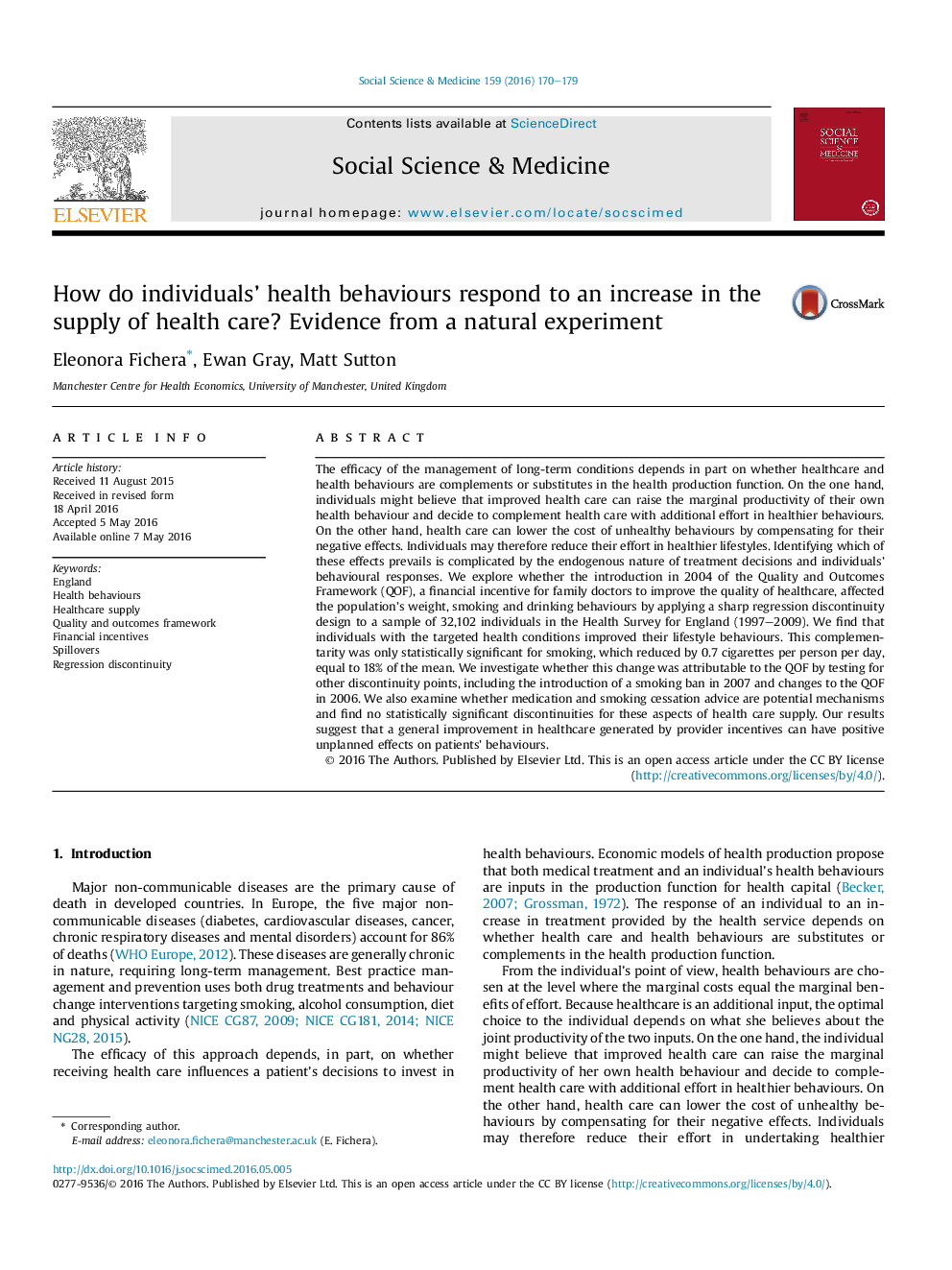| Article ID | Journal | Published Year | Pages | File Type |
|---|---|---|---|---|
| 7330040 | Social Science & Medicine | 2016 | 10 Pages |
Abstract
The efficacy of the management of long-term conditions depends in part on whether healthcare and health behaviours are complements or substitutes in the health production function. On the one hand, individuals might believe that improved health care can raise the marginal productivity of their own health behaviour and decide to complement health care with additional effort in healthier behaviours. On the other hand, health care can lower the cost of unhealthy behaviours by compensating for their negative effects. Individuals may therefore reduce their effort in healthier lifestyles. Identifying which of these effects prevails is complicated by the endogenous nature of treatment decisions and individuals' behavioural responses. We explore whether the introduction in 2004 of the Quality and Outcomes Framework (QOF), a financial incentive for family doctors to improve the quality of healthcare, affected the population's weight, smoking and drinking behaviours by applying a sharp regression discontinuity design to a sample of 32,102 individuals in the Health Survey for England (1997-2009). We find that individuals with the targeted health conditions improved their lifestyle behaviours. This complementarity was only statistically significant for smoking, which reduced by 0.7 cigarettes per person per day, equal to 18% of the mean. We investigate whether this change was attributable to the QOF by testing for other discontinuity points, including the introduction of a smoking ban in 2007 and changes to the QOF in 2006. We also examine whether medication and smoking cessation advice are potential mechanisms and find no statistically significant discontinuities for these aspects of health care supply. Our results suggest that a general improvement in healthcare generated by provider incentives can have positive unplanned effects on patients' behaviours.
Keywords
Related Topics
Health Sciences
Medicine and Dentistry
Public Health and Health Policy
Authors
Eleonora Fichera, Ewan Gray, Matt Sutton,
